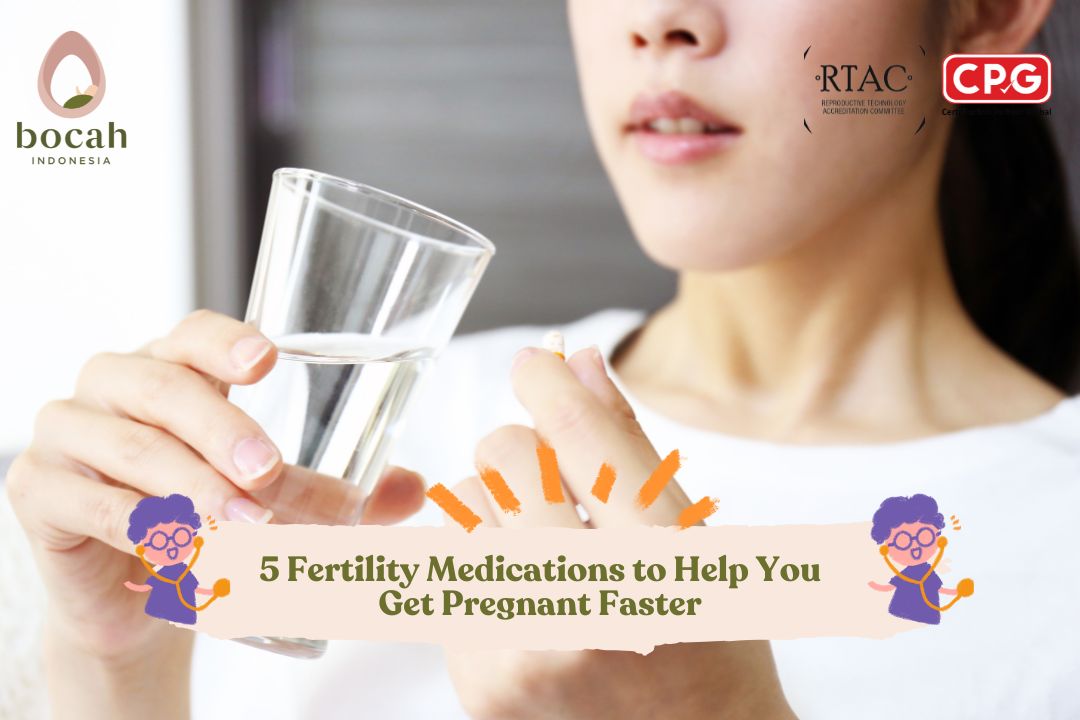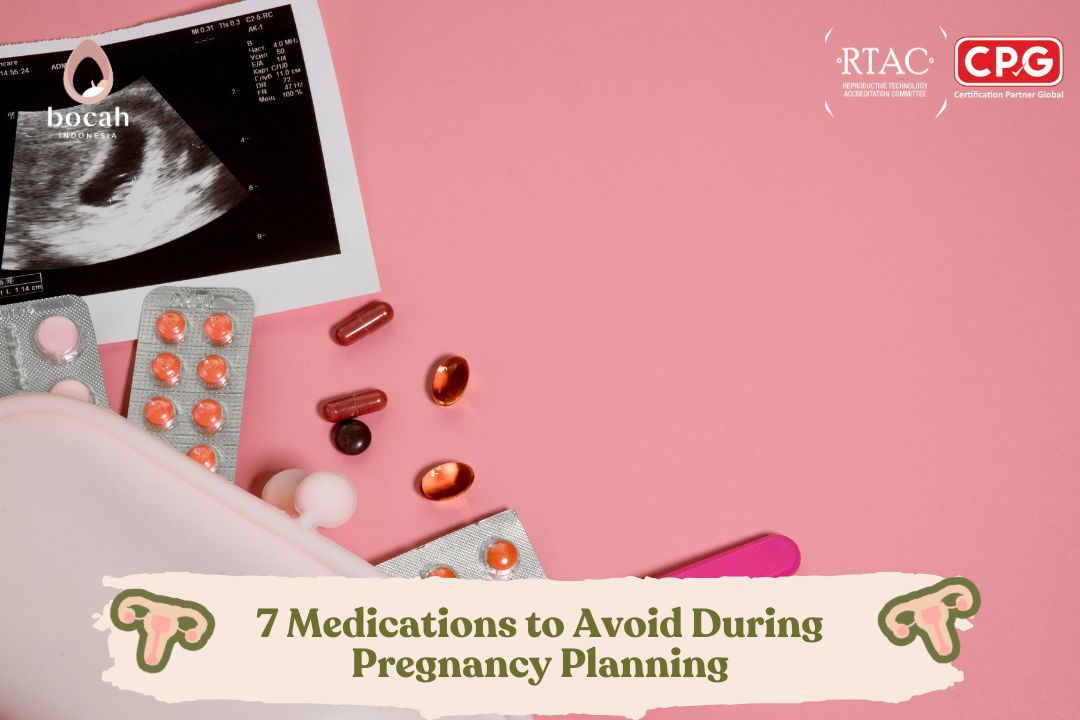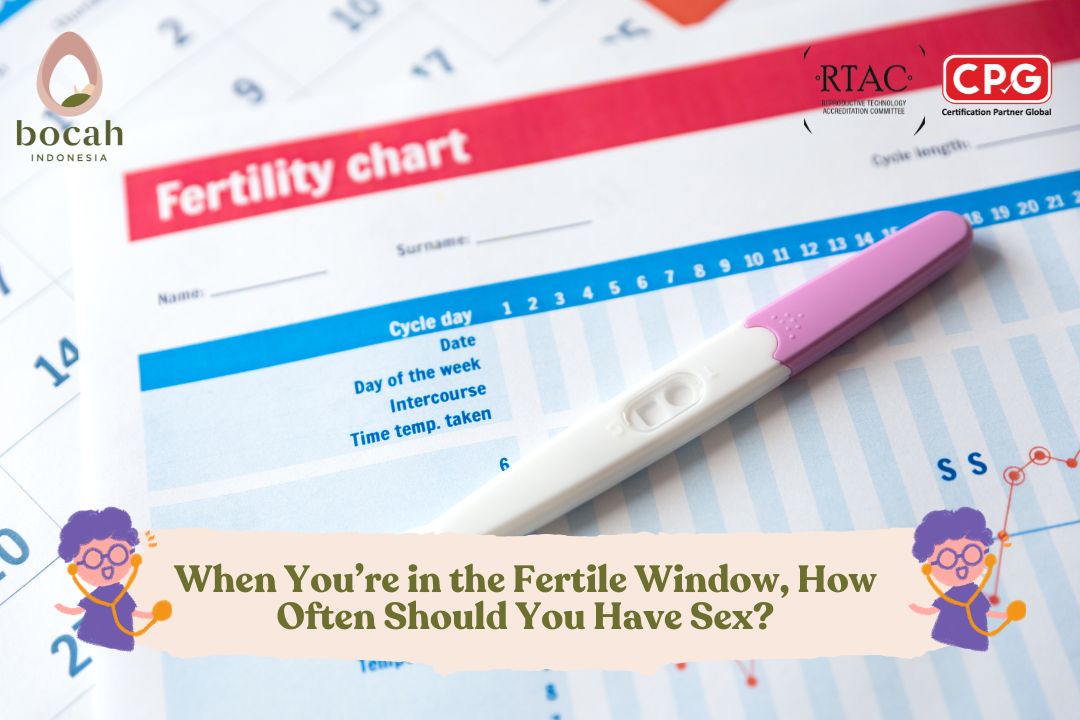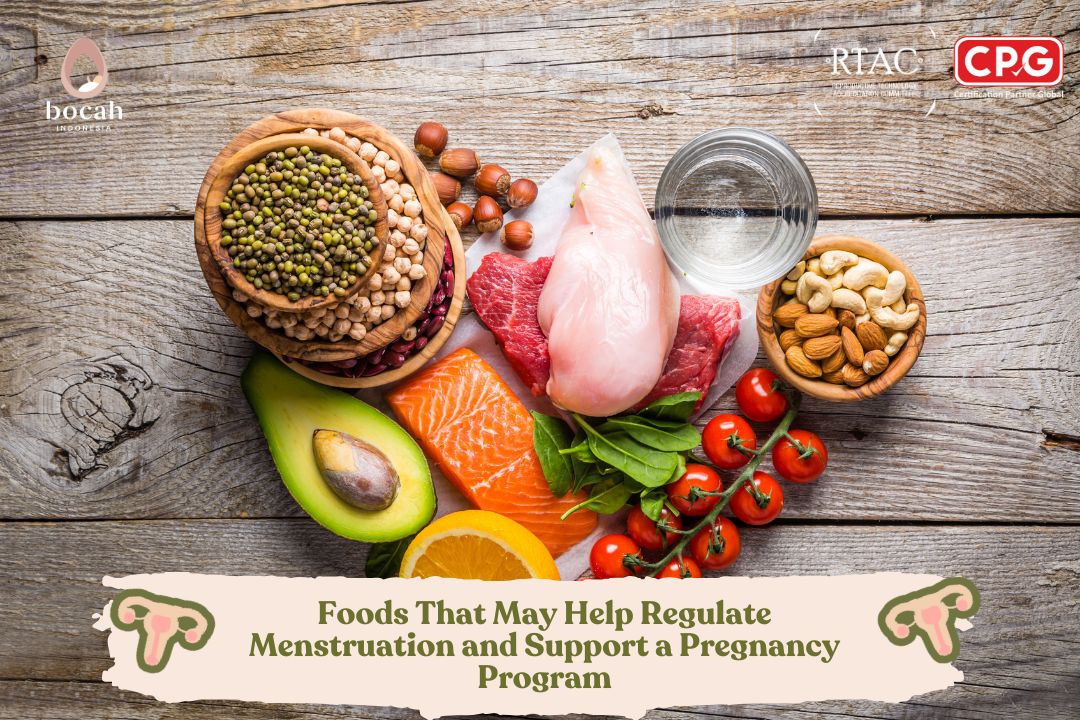5 Fertility Medications to Help You Get Pregnant Faster

Are you looking for medications to stimulate egg growth? Make sure you choose carefully. Check out the doctor-recommended options below.
For couples undergoing a pregnancy program (promil), fertility medications can be one of the ways to increase the chance of conception. These medications work by stimulating hormones that regulate or trigger ovulation, allowing healthier and more mature eggs to be released for fertilization.
Fertility drugs are also commonly used in assisted reproductive procedures such as in vitro fertilization (IVF) to improve the chances of successful fertilization. However, the choice of medication must be tailored to your medical condition and your body’s response to treatment, which is why they should always be used under a doctor’s supervision.
Types of Fertility Medications
Because fertility drugs interact closely with the body’s hormonal system, they must be taken with a doctor’s prescription only. One of the most common medical reasons for difficulty conceiving is the inability of the ovaries to release a mature egg. Several medications commonly recommended to stimulate egg development include:
Clomiphene Citrate
Clomiphene citrate is one of the most widely used medications to stimulate egg development. It has been used for more than 40 years and is often the first-line option in pregnancy programs. Clomiphene works by stimulating the pituitary gland to release hormones that help the ovaries produce mature eggs.
Tanya Mincah tentang Promil?
Its success rate ranges from 60–80%, and if pregnancy does not occur within six months, your doctor may recommend switching to another medication. It is also important to note that clomiphene may increase the likelihood of twin pregnancy.
Possible side effects include headaches, nausea, bloating, hot flashes, and changes in cervical mucus that may affect fertility.
Metformin Hydrochloride
This medication is often prescribed for women with Polycystic Ovary Syndrome (PCOS) who experience ovulation disorders. Metformin works by improving the body’s sensitivity to insulin, helping regulate ovulation cycles.
Although originally intended for individuals with type 2 diabetes, metformin has proven effective in pregnancy programs—especially for women with PCOS or obesity.
Bromocriptine
If you have excessively high prolactin levels, your doctor may recommend bromocriptine. Elevated prolactin can inhibit the production of estrogen and disrupt ovulation.
Bromocriptine helps normalize hormone levels so ovulation can resume. This medication may also be given to men if high prolactin levels contribute to fertility issues.
Gonadotropins
Gonadotropins contain luteinizing hormone (LH) and follicle-stimulating hormone (FSH), which directly stimulate the ovaries to produce mature eggs. They are commonly used in IVF programs or for women with PCOS who do not respond to other medications.
These medications are given via injection and may be combined with human chorionic gonadotropin (hCG) to improve pregnancy outcomes.
Possible side effects include injection-site pain, bloating, weight gain, and ovarian enlargement that may cause pelvic pain.
Nutritional Support for a Successful Pregnancy Program
In addition to fertility medications, maintaining a balanced diet is essential. Consuming foods rich in carbohydrates, proteins, and healthy fats helps support the development of healthy eggs.
Vitamins and minerals also play a key role in fertility. Recommended nutrients for pregnancy programs include:
-
Folic acid to support egg development
-
Vitamin B6 and B12 to maintain hormonal balance
-
Vitamins D and E to enhance egg quality
-
Iron, calcium, zinc, and selenium to support reproductive health
Supplements may also help meet nutritional needs during a pregnancy program, but they should be taken only after consulting a doctor.
Factors That Influence Fertility
Before using fertility medications, couples should understand the factors that may affect pregnancy outcomes, such as:
-
Age: Fertility decreases with age, especially after 35.
-
Lifestyle: Smoking, alcohol consumption, and excessive stress can reduce the chances of pregnancy.
-
Weight: Being overweight or underweight can disrupt hormonal balance and ovulation.
-
Medical conditions: PCOS, endometriosis, and thyroid disorders can affect fertility.
Side Effects of Fertility Medications
While fertility drugs can support pregnancy programs, they may also cause side effects such as:
-
Mood changes and sleep disturbances
-
Nausea, vomiting, or headaches
-
Increased risk of twin pregnancy
-
Ovarian hyperstimulation syndrome (OHSS) a condition in which the ovaries become enlarged and cause abdominal pain
If you are undergoing a pregnancy program and are considering fertility medications to stimulate egg growth, always consult your doctor first. This ensures that the treatment is suitable for your specific medical condition and can help increase the chances of a successful pregnancy.
Natural Alternatives to Boost Fertility
In addition to medication, several natural methods can support your pregnancy program, such as:
-
Consuming fertility-boosting foods like legumes, fatty fish, and leafy green vegetables
-
Exercising regularly without overexertion to avoid disrupting ovulation
-
Managing stress through meditation, yoga, or enjoyable activities
-
Avoiding exposure to harmful chemicals such as pesticides and BPA in plastics
Starting a pregnancy program requires patience and consistent effort. By understanding your medication options, maintaining a healthy lifestyle, and consulting your doctor regularly, you and your partner can increase your chances of welcoming your little one soon.
Source:
- Lv, Z. & Guo, Y. (2020). Metformin and Its Benefits for Various Diseases. Frontiers in Endocrinology, 11, pp. 191.
- Md Amin, N. A., et al. (2022). Are Vitamin E Supplementation Beneficial for Female Gynaecology Health and Diseases. Molecules Journal, 27(6), pp. 1896.
- Mayo Clinic (2024). Drugs and Supplements. Bromocriptine (Oral Route).
- Drugs (2024). Drugs A to Z. Human chorionic gonadotropin (HCG) (injectable).
- Drugs (2024). Drugs A to Z. Clomiphene Dosage.
- Lubeck, B. Verywell Health (2023). Supplements for Fertility: What to Take When Trying to Get Pregnant.
- Johnson, T. C. WebMD (2023). Fertility Drugs.










